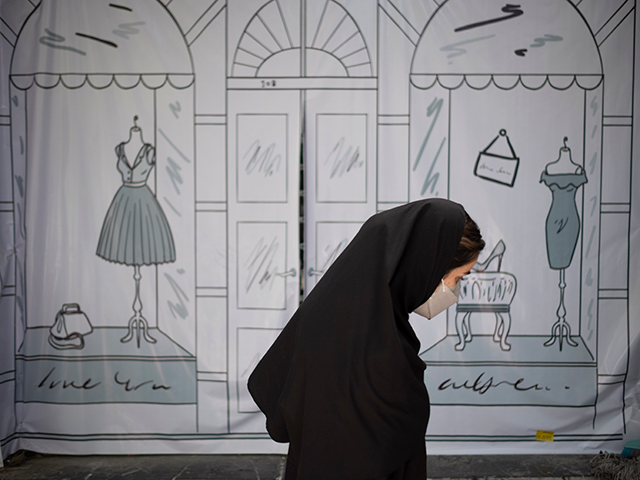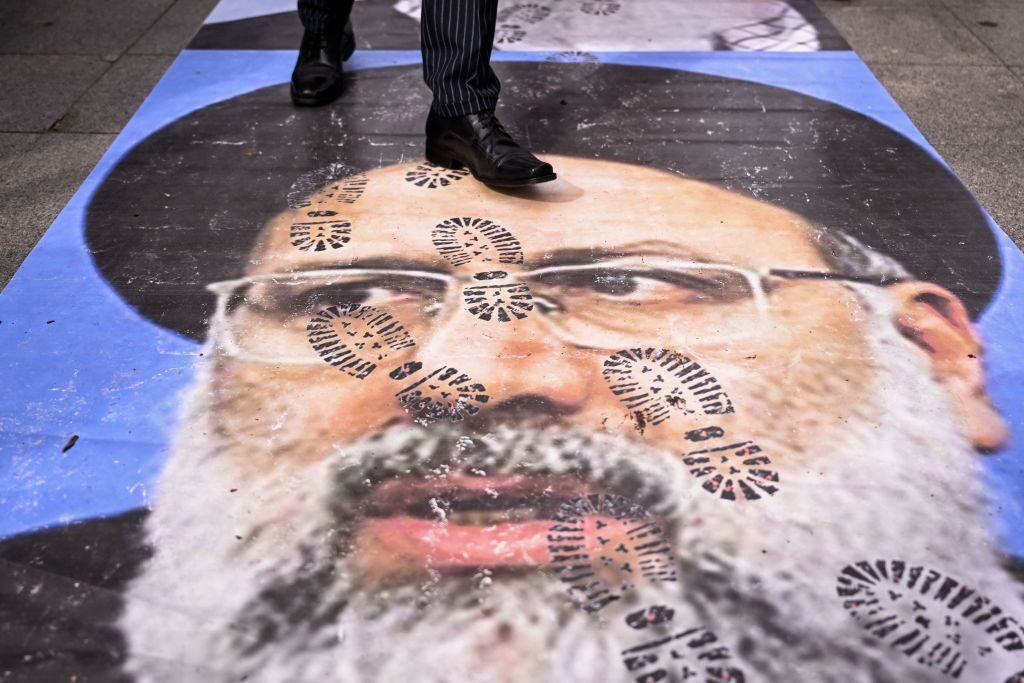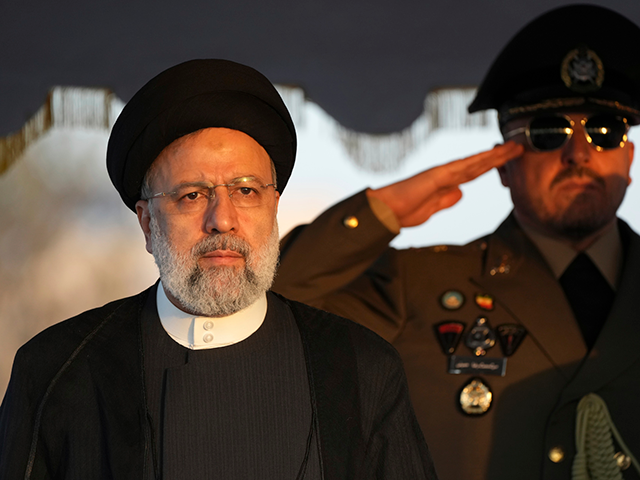The Islamic dictatorship of Iran announced on Sunday that it had received a formal invite for President Ebrahim Raisi to visit Riyadh, Saudi Arabia, from that nation’s King Salman.
The invite followed the surprise announcement last week that Iran and Saudi Arabia had agreed to re-establish diplomatic ties, restoring full diplomatic representation in each other’s capitals and rebuilding tattered geopolitical ties. The Chinese Communist Party took credit for brokering the agreement between representatives of both countries in Beijing. Chinese state media outlets effusively praised the Communist Party for its role and proclaimed that the restoration of diplomatic ties between the two rival Muslim states heralded the end of American influence in the entire Middle East.
Iran, the world’s largest Shia Muslim nation, and Saudi Arabia, the custodian government of the two holiest sites in Islam, have struggled to contain each other’s influence for decades. They broke off formal diplomatic ties in 2016, after a mob firebombed the Saudi embassy in Tehran, and have since become embroiled in a proxy war in neighboring Yemen, where the Saudis support the legitimate government of the country and Iran has armed and aided the terrorist Shia Houthi movement.
Under former President Donald Trump, the United States galvanized opposition to an emboldened Iran, enriched by Trump’s predecessor Barack Obama forging an agreement with Tehran that involved sending upwards of a billion dollars in cash to the state sponsor of terrorism. In addition to Saudi Arabia, Iran found its ties to other neighboring states, prominently Bahrain and the United Arab Emirates, deteriorating, along with its influence outside of the war zones of Syria and Iraq.

An Iranian woman walks past a shop window in northern Tehran on July 9, 2022. Iran President Ebrahim Raisi called a meeting with officials on lack of compliance with hijab rules promotion of corruption in an Islamic country such as Iran. (Morteza Nikoubazl/NurPhoto via Getty)
The administration of current President Joe Biden welcomed China shepherding Iran back into the good graces of its neighbors last week.
“No sour grapes here,” White House official John Kirby said last week.
“[I]f this thing has the effect that we want it to have, that’s a good thing,” Kirby continued, “And the President is very comfortable with our leadership in the Middle East region, the partnerships that we have there, the relationships, and all the efforts that we are doing to hold Iran accountable.”
Raisi’s deputy chief of staff, Mohammad Jamshidi, announced that the Saudi royal family had invited the president to visit the Saudi capital through a message on Twitter published Sunday. Jamshidi indicated that Raisi accepted the invitation but neither side had yet begun planning a date and time for the event.
“In a letter to President Raisi, the king of Saudi Arabia welcomed the deal between the two brotherly countries, (and) invited him to Riyadh,” Jamshidi wrote, according to a translation by the Iranian state outlet PressTV.
“The president welcomed this invitation and emphasized Iran’s readiness to enhance cooperation,” Jamshidi noted.
Separately, Iranian government officials announced on Sunday that they had proposed at least three locations to schedule a meeting between their respective foreign ministers and were waiting for a reply.
The government of Saudi Arabia has neither confirmed nor denied the reports at press time.

A protester steps on a poster showing Iran’s President Ebrahim Raisi during a protest in support of the Iranian resistance movement, on March 20, 2023 in Brussels. (LAURIE DIEFFEMBACQ/Belga/AFP via Getty Images)
Human rights experts consider Raisi one of the world’s worst human rights criminals currently in a head of government position. In 1988, Raisi, then serving as a senior official in charge of “Death Commissions,” was tasked with following through on a fatwa, or religious edict, by Supreme Leader Ayatollah Ali Khamenei ordering the execution of between 5,000 and 30,000 political prisoners, many of them belonging to the People’s Mojahedin Organization of Iran (PMOI) and the Mujahedin-e-Khalq (MEK) opposition groups.
Saudi Arabia also maintains a woeful human rights record, offering its citizens nearly no religious or political freedom and severely repressing the rights of women. Under de facto ruler Crown Prince Mohammed bin Salman, Saudi Arabia has taken modest steps towards improvement, such as legalizing movie theaters and allowing women to drive cars.
Chinese dictator Xi Jinping met with both Mohammed bin Salman and Raisi recently – Xi visited Saudi Arabia late last year, while Raisi visited Beijing in February – shortly before the Communist Party announced that the two Mideast countries had agreed to send each other ambassadors again. During Raisi’s time in China, Raisi emphasized Iran’s interest in expanding economic ties to China, which is already Iran’s largest trade partner.
“As two living and dynamic human civilizations, Iran and China were connected to each other via the historic Silk Road, and ascertained the fact that prosperity and happiness as desirable popular goals can only be achieved through interaction and cooperation,” Raisi wrote in an opinion article published in the People’s Daily, the official newspaper of the Chinese Communist Party.
Iran and Saudi Arabia are both participants in China’s “Belt and Road Initiative” (BRI), a global infrastructure plan billed as an attempt to reconstruct the Ancient Silk Road. In reality, China uses the BRI to ensnare poor countries into onerous debts that erode their sovereignty. Unlike most nations, Xi invited Saudi Arabia to participate in the plan by helping build projects in third countries, as Saudi Arabia’s booming economy makes it a poor candidate for BRI loans.
Last week, Iran and Saudi Arabia announced the restoration of ties, which China declared the death knell of American influence in the region.

COMMENTS
Please let us know if you're having issues with commenting.